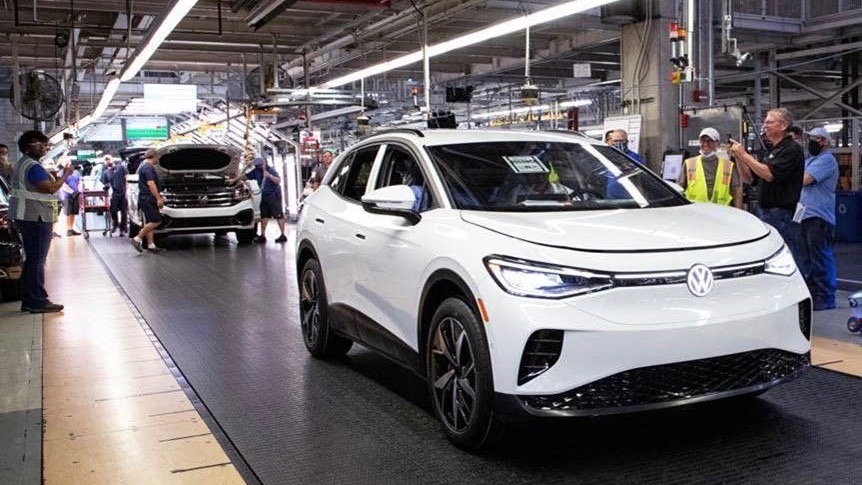Volkswagen Group of America CEO Scott Keogh has reportedly called the Biden administration's proposed tax credit for electric cars built at unionized factories "fundamentally wrong."
The interview, for the SiriusXM show "In The Driver's Seat," isn't scheduled to air until November 2, but industry trade journal Automotive News (subscription required) published a series of quotes attributed to Keogh that don't mince words on the issue.
VW is ramping up production of the ID.4 electric crossover at its Chattanooga, Tennessee, factory with the goal of getting U.S.-produced vehicles into showrooms next year. Despite VW workers represented by a strong union in its home Germany, VW's U.S. factory isn't unionized, so its products would lose out on that extra tax credit.
Keogh said the union-made bonus would privilege workers in other parts of the country over VW's Chattanooga workers.

First 2021 Volkswagen ID.4 validation build completed at Chattanooga factory
The way the latest EV tax-credit bills are currently written, buyers of non-union-made or imported EVs would still receive the current $7,500 tax credit, with some new constraints. But they wouldn't be eligible for a union-made bonus of $4,500 in the House version of the bill or $2,500 in the Senate version.
Tesla, Honda, and Toyota—which also build cars at non-union U.S. factories—have also pushed back on the union-made bonus. In a letter to Congress, Toyota framed its objections around claims that the union-made bonus would be a handout to the wealthy.
Biden has also pushed for point-of-sale incentives instead of something you have to wait and file with your taxes. But that's something that might not happen this time around.
With batteries the most resource-intensive single component in EVs, a push for more American-made batteries might be a better use of extra incentives.












